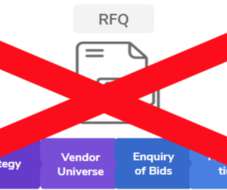10 Must-Read Supply Chain Analytics Books for 2023
SCMDOJO
JANUARY 23, 2023
If you want to gain more supply chain analytics knowledge, you’re in the right place. We’ve compiled a list of 10 great supply chain analytics books to help you better understand the concepts and strategies behind this vital business field.












Let's personalize your content